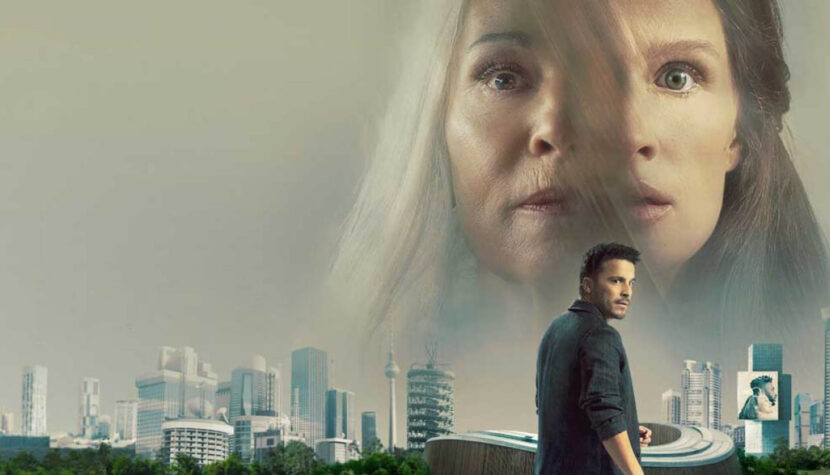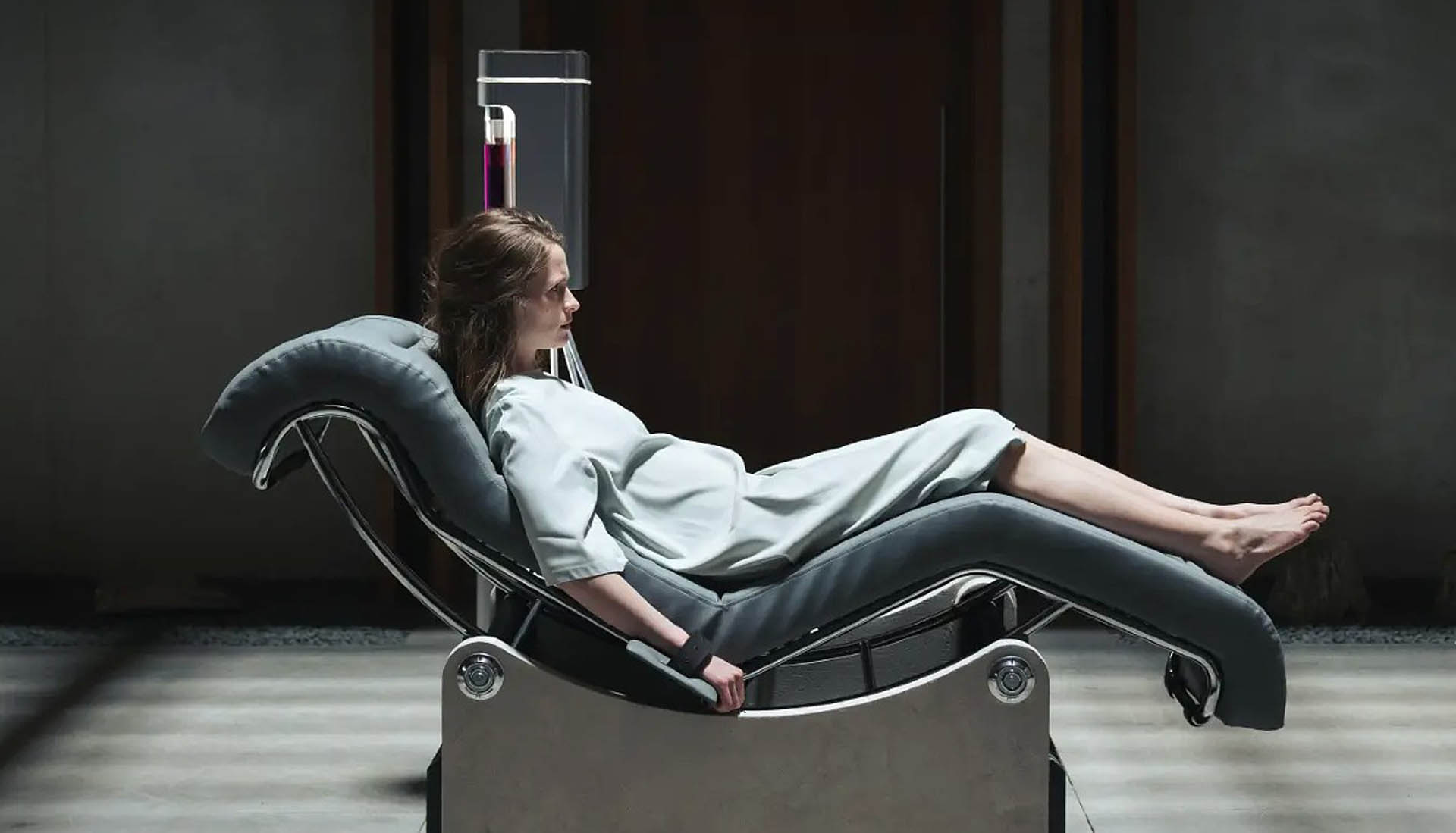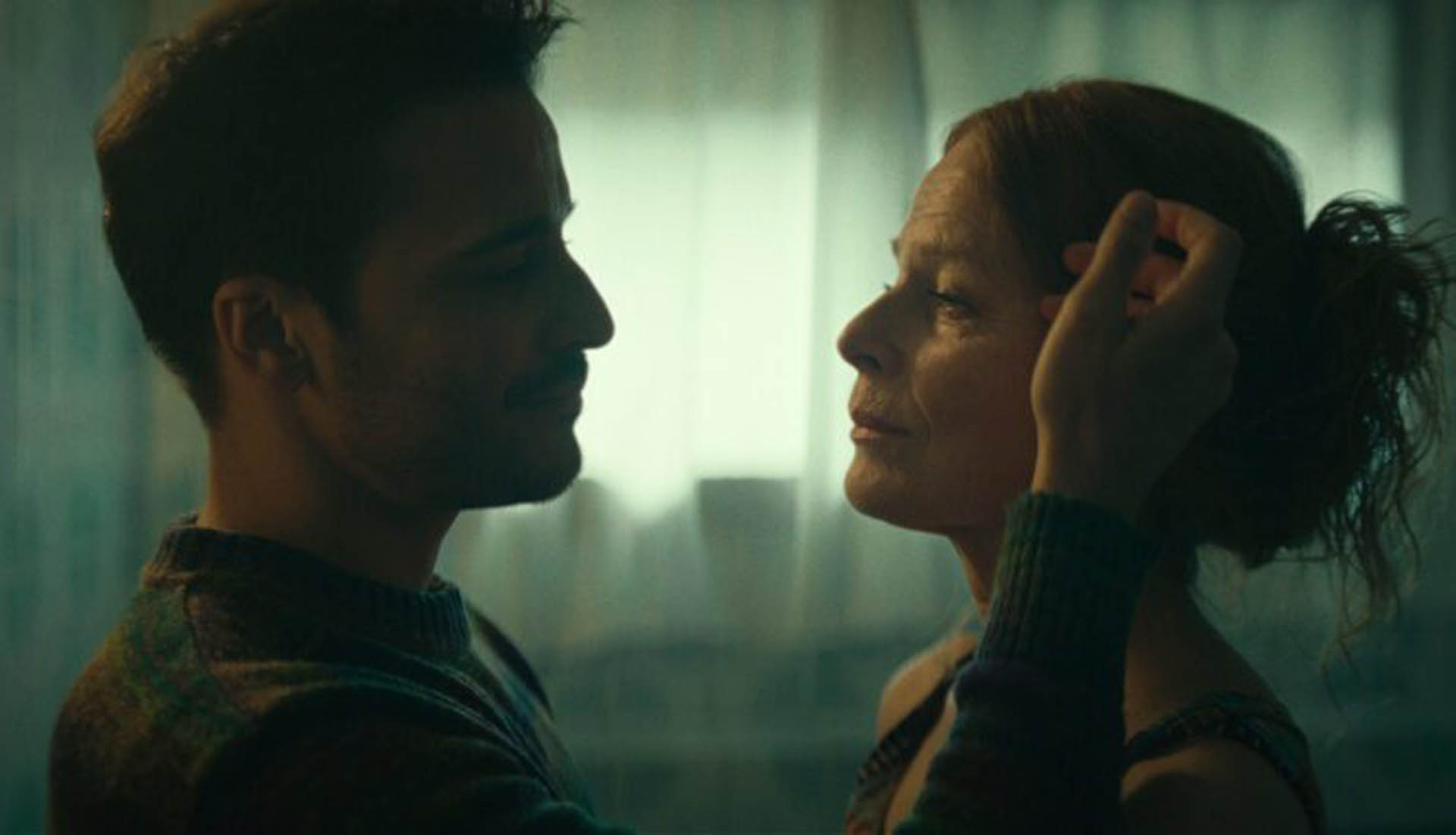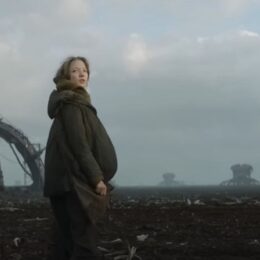PARADISE. German science fiction inspired by Blade Runner

As we may know, high science often starts as pure imagination in books and comics, and then it turns out to either improve our lives or lead us to ruin. And so, the scientific achievement of extending life, concocted by the Germans, is portrayed in the Netflix production Paradise. Life is a commodity that can be bought and sold, essentially taken from another person in order to live longer oneself. The idea of immortality is not new in science fiction, but it’s enchantingly presented, something that European cinema has lacked until now. However, other cinematographies still has a long way to go. For now, Bavarian Boris Kunz, along with his screenwriters Simon Amberger and Peter Kocyla, have impressively paved the way.
Today, credit is more valuable than LIFE.
The statement that credit is more valuable than life was meant to be a play on words, allegorical, cynical, and above all, untrue. However, upon deeper reflection and looking at the surrounding reality, the pursuit of possessions by people and their fear of losing their jobs while having a long-term loan, there is some truth in this titular metaphor. Not just something, but much more than it should be. It’s not without reason that it’s said credit ties you for a lifetime better than marriage, love, etc. In a way, taking out a credit takes away life, not literally in the biological sense, but it casts a shadow over that life that cannot be easily lifted. And if you try to lift it, it’s not always by choice but due to random events; and in this way, you can lose that very biological life.
So, this metaphor—or allegory, if you prefer—when you read in the title that credit is “more important than life,” makes sense and is true. It’s hard not to get the impression that the lives of most people are, in a sense, already sold. And if you were to add one more possibility of securing the credit, not in the form of guarantors, not a mortgage, but something akin to the force of life or the entire life process over time? Let’s say that a year of life would be worth 9143 units, which is the average cost of a square meter say in Poland in 2023. Thus, the average lifespan for a woman in 2023 would be worth 80 years x 9143 units, which is 731,440 units, and for men, 72 years x 9143 units, which is 658,296 units. From this pool, the bank could draw credit security and in drastic cases take away several, a dozen, or even several dozen years of life to repay at least part of the borrowed money.

From these calculations alone, it can be seen that couples would have stronger insurance, as the years to be taken could be spread across two biological lives. Overall, nothing would change. Today, it is also easier for couples because with two incomes, two potential estates, it’s easier to spread the potential debt that would exhaust an individual. Does it sound paranoid? No. Quite rationally from a business perspective.
Related:
Sword of Damocles
Such a vision, where credit hangs over our lives like the sword of Damocles, was presented to us by the creators of Paradise, but it’s not entirely about credit here. It’s more about life, as life becomes a commodity, and genetic technology can suck it out of one person and transfer it to another. The price doesn’t matter in this case for all those who can AFFORD potential immortality. Human rights are suspended, especially the right to life, which is in demand. Everything is, of course, regulated by appropriate contracts, unless something unexpected happens, like someone’s insured “life asset,” like a house, burning down. In that case, the bank will demand repayment over the years, and someone who can afford such a purchase will take those years. Simple, right? In such a situation, the protagonists of Paradise find themselves – Max (Kostja Ullmann) and Elena (Corinna Kirchhoff). Except that Max is the person who persuades people to give away their years to the AEON corporation. However, everything always changes drastically if you look at the problem through the prism of the same problem/task/conflict experienced by yourself.
The story of this duo’s struggle is not unique in science fiction cinema – many have fought for their lives, which are commodities taken away in one way or another by some privileged social class. However, the way this history is presented to the viewer, especially for genre cinema in Europe, is worth attention and appreciation, as such fantasy is still unthinkable and unachievable for many national film industries.

And it’s not about special effects, which are not abundant in Paradise, although they are placed where they are truly needed, and efforts have been put into lighting, characterization, set design, and the visual aspect of the shots. Today, science fiction no longer relies on dazzling visions of the future world. Creators don’t go so far, hundreds of years into the future. Instead, they fantasize about a world no older than the next hundred years. They supplement old cities with newly inserted buildings, presenting the viewer with not a revolution of reality but its gradual evolution. In such a familiar yet unfamiliar environment, a good concept in science fiction is needed to engage the viewer with narrative, suspense distribution, character development, and non-obvious solutions to moral dilemmas.
Brilliant concept
In the beginning of Paradise, this brilliant concept is not immediately visible, which needs to be pointed out to the creators. At times, it can even feel boring, overly sugary, lacking atmosphere, like a clichéd drama film. Only when fate presents the characters with a radical choice does the story come alive. The atmosphere changes, and the cinematic reality stops being a corporate representation of paradise on Earth for the viewer to casually enjoy adventure-filled science fiction. The viewer shouldn’t have it too easy. They must think for themselves which side of the conflict they will take because the line between positive and negative characters in Paradise is not obvious. They must feel what the victim thinks and what the oppressor thinks, as well as how these roles can easily reverse. It’s enough to engage in a game for something primal – life. The story leads us through progressively darker visual and musical environments, until a conclusion that doesn’t predetermine or close anything. If an element of transhumanism or an android were introduced into the narrative, Paradise could resemble Blade Runner in terms of narration and execution, without being a copy or continuation, of course. This is, in fact, the same set of emotions, puzzles, and doubts that we’ve been trying to answer since humanism became more than just philosophical talk, with real implications in law and social consciousness.

Imagine someone taking away several decades of your life. Overnight, we age, and then it turns out we can reclaim that debt, not from the person who took those years from us, but from their child. Do we have the right to take away their future in the same way someone took ours? Did the replicants have the right to kill their creators because they weren’t given a chance at a life longer than what sufficed to be slaves for a moment? Science fiction cinema should ask these questions, dress them in a mood that is rationally elevated yet devoid of excessive emotions. Science fiction cinema should ask these questions in a graphical style designed with painterly finesse. And finally, science fiction cinema should tell stories through the mouths of characters, stories that can’t be easily repeated with the same words, as they escape communal and stereotypical thinking. All of this can be found in Paradise.





